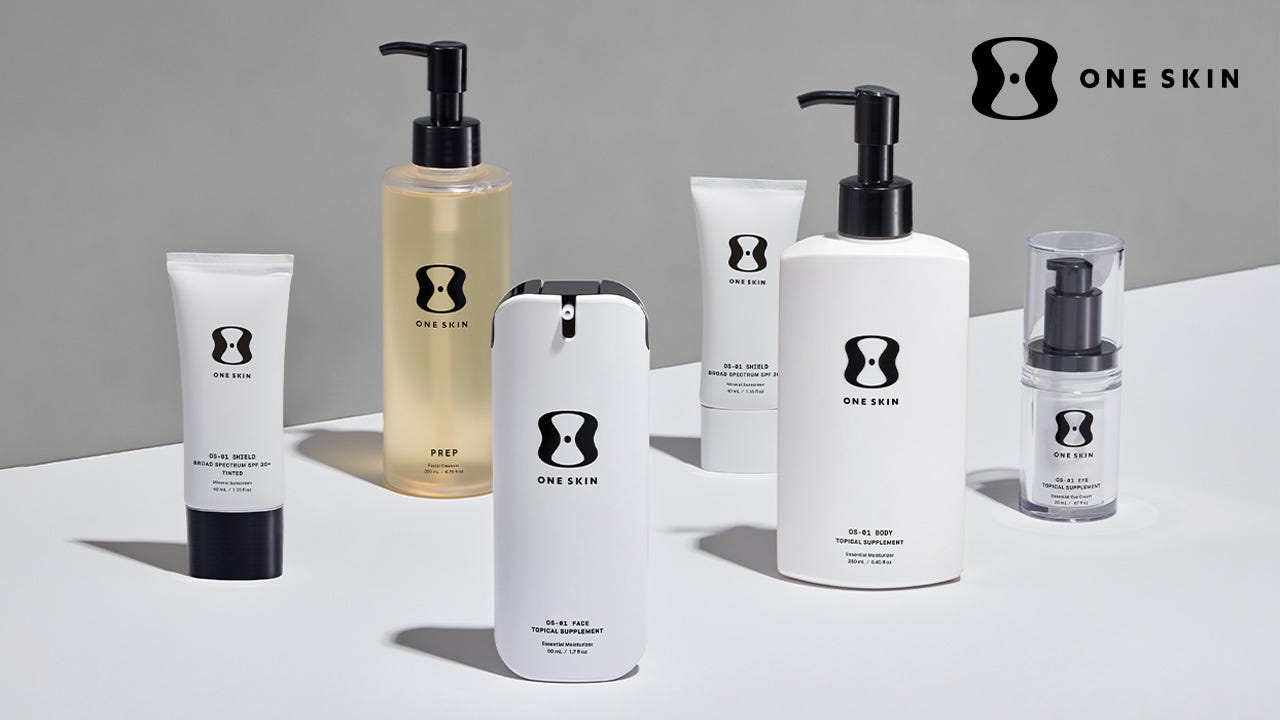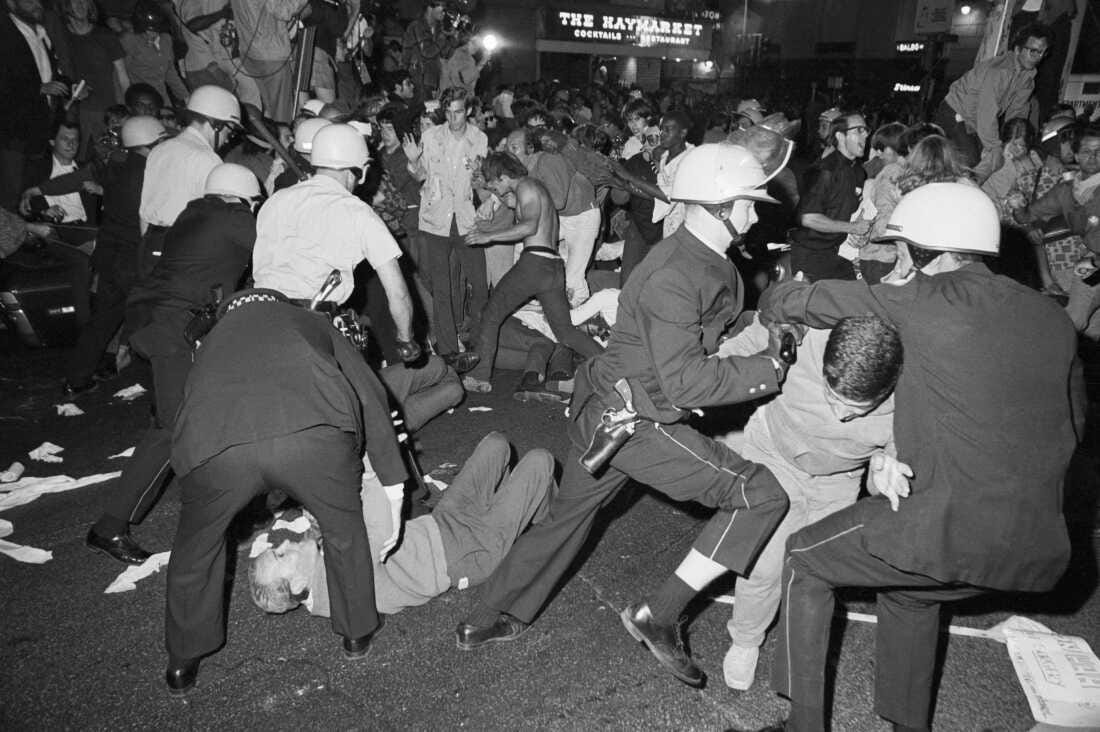The Time a Pig Was Nominated for President
A look at how a disastrous 1968 Democratic convention changed democracy
A few days before the Democratic National Convention in August 1968, a surprising nomination was put forth: Pigasus, a spotted pig.
Pigasus was purchased for $20 from a farmer in Libertyville, Illinois, about 40 miles north of Chicago. He was brought to the city and presented outside the convention with the campaign slogan: “If we can’t have him in the White House, we can have him for breakfast.”
Obviously Pigasus’s nomination was not serious, and was meant to get attention for the demonstrators who stood outside the convention protesting against the US involvement in Vietnam.
These protests got violent, and Pigasus was confiscated by police when protesters were arrested. His whereabouts remained a mystery for a long time, though it was later revealed that Pigasus, along with two other pigs from the protests, were turned over to the Chicago Anti-Cruelty Society and eventually sent to a farm in the country.
Of course this sounds ridiculous, but it’s not even the craziest thing that happened during the chaos that was the 1968 Democratic National Convention.
That year, the Democratic Party was in full-scale crisis mode. President Lyndon B. Johnson had lost popular support because of his Vietnam War policies, and looked ahead, knowing it would be difficult for him to be renominated. So he shocked the nation by announcing in March that he would not be running for re-election.
About a month later, Vice President Hubert Humphrey said he was going to throw his hat in the ring, and LBJ quickly backed him. Humphrey was too late to join in the primary races, but at that time, not every state participated in primaries.
States first started having primary elections for president in 1910, but not every state participated. Some had primaries, some didn’t, and in the states that didn’t, party bosses would just choose delegates to attend the nominating conventions and suggest who they should vote for.
Essentially, this meant that heads of the parties in each state were choosing the presidential nominees in smoke-filled, secret, back room meetings.
So even if a candidate won big in the primaries in states that had them, the candidate might not win the nomination at the convention, because states that didn’t participate in primaries outnumbered the states that did. It also meant that someone unknown or unliked by party leaders had no shot of getting selected.
In 1968, the country was in turmoil over the war in Vietnam and the Civil Rights Movement. Just a few months after Martin Luther King Jr. was killed, Robert F. Kennedy was assassinated. His party delegates had to decide who to support at the convention as the country was still reeling from his death.
Meanwhile, protests outside the convention had been planned for months. Members of organizations including the Youth International Party (yippies) and the National Mobilization Committee to End the War in Vietnam (MOBE) applied for protesting permits.
But Chicago’s mayor was not going to let protests overshadow the convention. He only approved one permit, hoping to dissuade people from coming.
Sponsored by OneSkin:
As history teaches us about the importance of safeguarding our rights, OneSkin is dedicated to protecting the health of our skin. And given the time of year, our skin needs a reliable defense against the sun’s damaging rays. That’s where OneSkin’s summer bundles come in.
Powered by the OS-01 peptide and scientifically proven to reverse your skin’s biological age, OneSkin’s mineral sunscreens for face and body provide UV protection while actively supporting skin health at the cellular level. Consider it a smart investment in your skin’s future. Enjoy 15% off your first purchase with code HWIGI at oneskin.co.
That didn’t matter. Protesters arrived in force a full week before the convention, with Pigasus in tow, and took over Lincoln Park, which was about 10 miles away from the convention site.
At first, the protests were peaceful. But Mayor Richard Daley wasn’t taking any chances. He enacted an 11pm curfew and ordered 12,000 police officers, 5,600 members of the Illinois National Guard, and 5,000 Army soldiers to make sure the protesters obeyed the curfew.
By the third day of the convention, tensions had escalated to the point where violence erupted on the streets and inside the convention hall.
Outside, around 10,000-15,000 people gathered, and things got heated between protesters and police. The chaotic scene got worse as tear gas was released, and police started beating protesters and innocent bystanders.
The Washington Post said: “They clobbered men and women, protesters and innocent bystanders, reporters and photographers. They confiscated film from cameras ... Another woman who was enduring a beating looked up into the faces of the officers and noted that they’d removed their badges.”
Over 650 protesters were arrested.
Meanwhile, the scene inside the convention was almost as wild. None of the days had gone smoothly, but after a section of the platform that would have called for peace in Vietnam was defeated, fights broke out on the floor. More confrontations happened when delegates found out about the violence happening outside the convention doors.
Journalist Dan Rather was sucker punched on live television while trying to interview a delegate from Georgia. Security guards were leading the delegate out of the convention hall and Rather tried to ask why. A plain-clothes security guard punched Rather in the stomach and knocked him down.
LBJ secretly hoped the Democrats would want to renominate him. They did not. The nod went to Hubert Humphrey.
Fifty-six years later, the Democrats are heading back to Chicago for only the second time since the 1968 convention.
This convention has some parallels with 1968. The incumbent candidate dropped out of the race, and the sitting VP quickly won delegate support. There is anger in America over another war overseas, this time in Gaza, and tens of thousands of people are expected to show up for planned protests outside the convention. Organizers have been fighting with Chicago officials for months about how close they can get to the DNC and how long a planned march can be.
But there are also differences, mostly because of changes made after the 1968 convention. After Humphrey’s lost the general election to Richard Nixon, the Democratic National Committee said, “Let’s never do that again,” and they tasked a commission with figuring out how to make the primary system better.
The commission came up with a system that allowed for greater public input. The party adopted a rule that mandated all delegates be chosen through a process open to “full public participation.”
Immediately, more states started to have primaries, and not long afterward, the Republican Party adopted similar rules. Now, all 50 states have a primary or caucus system.
This week, Democrats will solidify the party platform, and Harris and Walz will give speeches, along with big names like Barack Obama, Nancy Pelosi, and Hillary Clinton. Modern day conventions are really more about boosting a candidate’s profile, creating excitement, and demonstrating party unity than they are about choosing a candidate.
But if 1968 taught us anything, it’s that change to the system can still happen.
Are you going to be watching any parts of the DNC? Let me know here.
This is not corporate media. I don’t have backers or investors, my work is completely supported by you. If you value thoughtful content with an educational mission, consider becoming a paid subscriber to allow me to continue. And thanks for being here!









It'll be fascinating to see how this period of America will be studied 50 years from now. We can look back on 1968 with a level of objectivity and say, "Of course the public should have a say in candidates. Of course civil rights matter. How were these concepts ever in question?" What will the "Wtf were they thinking back then??" moments be in the 2080 history (e)books?
I usually don't bother much with the conventions. I don't need much time to make up my mind about voting, especially this year! It's Harris/Walz for me. But as this year is a real turning point in American History, I will watch.
I was 18 in 1968, immature, ignorant of politics, the civil rights movement, and even the Vietnam War, and paid no attention to the Chicago convention then. Thank you for the History lesson Sharon, although I did finally catch up with the period! Today, my passion is being a student of history.